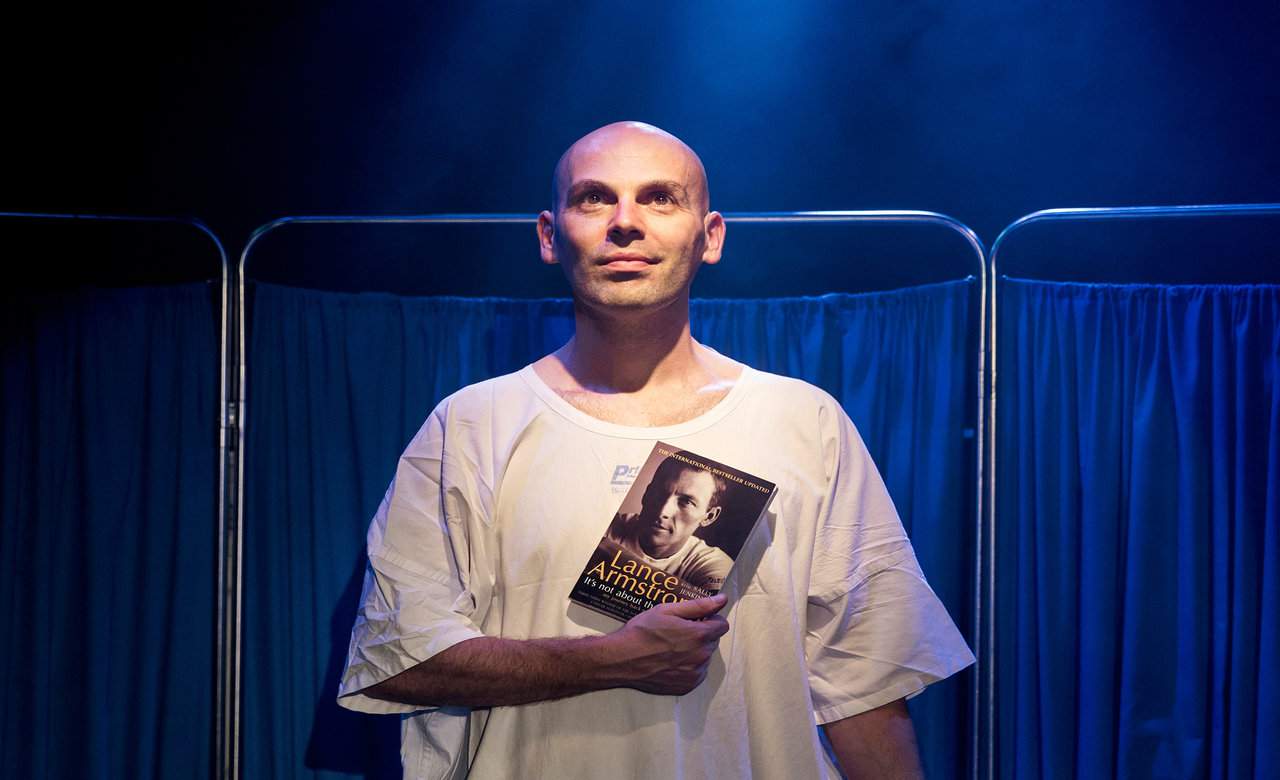The Orchid and the Crow - Malthouse Theatre
The personality of the aggressively endearing Daniel Tobias is enough to paper over most of the show's cracks of uncertainty.
Overview
At the age of 29, Daniel Tobias was diagnosed with testicular cancer. Now 40, he's made a show that translates his experiences of illness and recovery into songs and stories through the lens of his identity as a conflicted "atheist Jew".
The Orchid and the Crow is impressive for its ability to find light-hearted humour in unpalatable material. But for a show that has perhaps more in common with the conventions of narrative stand-up comedy rather than solo theatre performance, it seems unwilling to commit fully to the strengths of either form. The connection Tobias draws between circumcision and the surgery is a neat conceit but not substantial enough to sustain over an hour's worth of story. And the later introduction of the figure of a messianic, contradictory Lance Armstrong during his recovery isn't quite enough to get it over the line.
It's probably unfair to lump Tobias with this criticism but something grates about the ubiquitous American musical theatre style voice deployed in half the show's songs. There might be rich veins of comic possibility waiting to be mined from this kind of parody of the form, but Australian performers' insistence on this style (rather than their natural accent) always carries a vestigial whiff of cultural cringe. On the other hand, the effect actually heightens the emotional impact of the combined song and animation that embodies the show’s title sequence, which arrives with all the more devastating and surprising force as a result.
With an opening-night audience packed with enthusiastic well-wishers, it's hard to gauge the effectiveness of the performer's humour. However, the personality of the aggressively endearing Tobias is enough to paper over most of the show's cracks of uncertainty, and some potent moments — especially the static that replaces a doctor's voice as Tobias is given his diagnosis — are terribly affecting.
Image by Andrew Wuttke.





